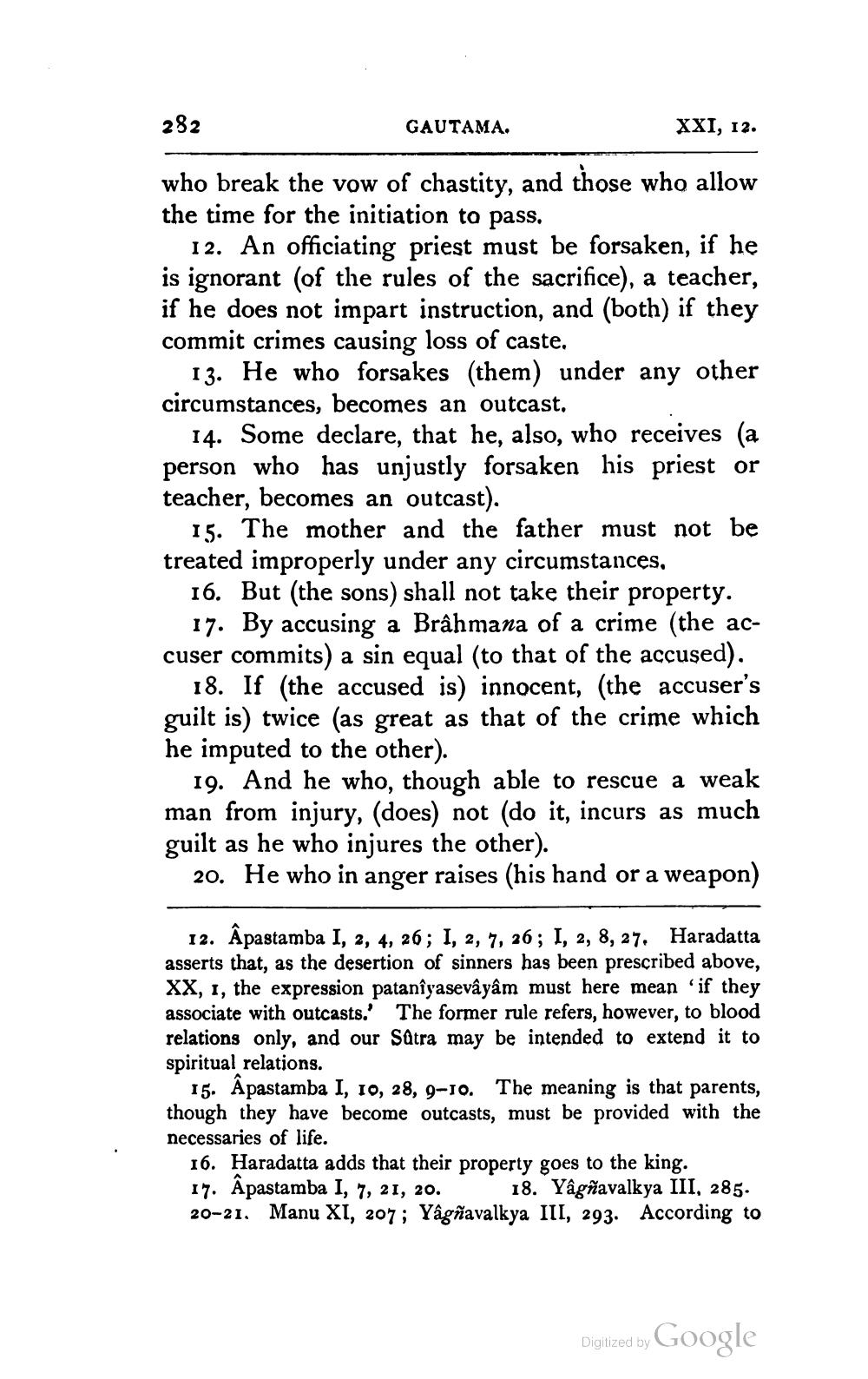________________
282
GAUTAMA.
XXI, 12.
who break the vow of chastity, and those who allow the time for the initiation to pass.
12. An officiating priest must be forsaken, if he is ignorant (of the rules of the sacrifice), a teacher, if he does not impart instruction, and (both) if they commit crimes causing loss of caste.
13. He who forsakes (them) under any other circumstances, becomes an outcast.
14. Some declare, that he, also, who receives (a person who has unjustly forsaken his priest or teacher, becomes an outcast).
15. The mother and the father must not be treated improperly under any circumstances,
16. But (the sons) shall not take their property.
17. By accusing a Brâhmana of a crime (the accuser commits) a sin equal (to that of the accused).
18. If (the accused is) innocent, (the accuser's guilt is) twice (as great as that of the crime which he imputed to the other).
19. And he who, though able to rescue a weak man from injury, (does) not (do it, incurs as much guilt as he who injures the other).
20. He who in anger raises (his hand or a weapon)
12. Âpastamba I, 2, 4, 26; 1, 2, 7, 26; I, 2, 8, 27. Haradatta asserts that, as the desertion of sinners has been prescribed above, XX, 1, the expression patanîyasevâyâm must here mean if they associate with outcasts. The former rule refers, however, to blood relations only, and our Sätra may be intended to extend it to spiritual relations.
15. Âpastamba I, 10, 28, 9-10. The meaning is that parents, though they have become outcasts, must be provided with the necessaries of life.
16. Haradatta adds that their property goes to the king. 17. Âpastamba I, 7, 21, 20. 18. Yâgñavalkya III, 285. 20-21. Manu XI, 207; Yâgñavalkya III, 293. According to
Digitized by Google




